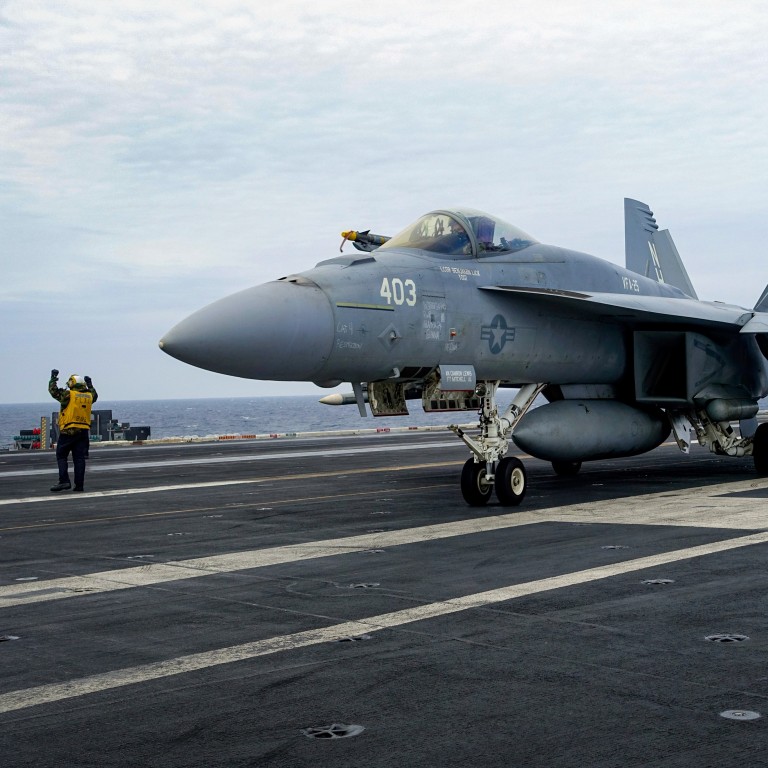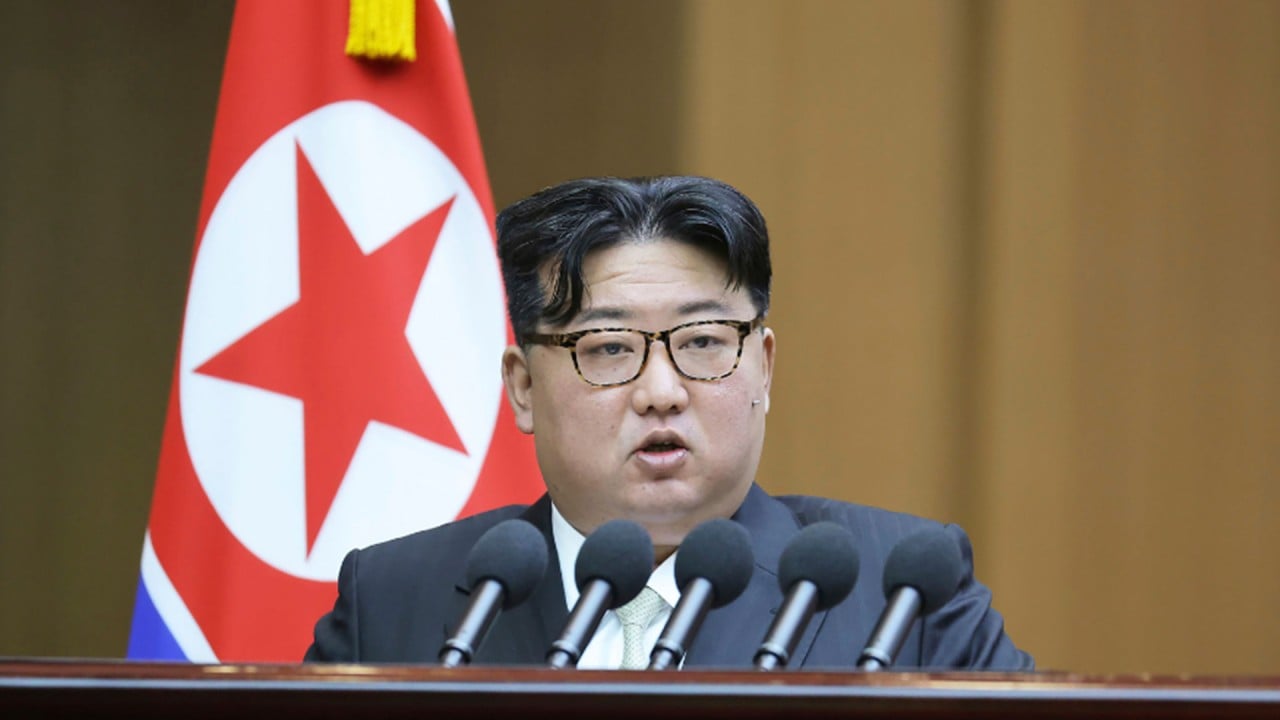
Was the US-South Korea-Japan drill just about North Korea? China might beg to differ
- Beijing will feel ‘inconvenient’ as Washington steps up trilateral military cooperation to stem Pyongyang threats, expert says
- But North Korea’s ‘pariah status’ will keep relations with China ‘constrained’, according to analysts
The exercise involved six warships – the USS Theodore Roosevelt aircraft carrier, three Arleigh Burke-class guided-missile destroyers, and two Aegis destroyers from South Korea and Japan.
“This training was conducted to implement a multi-year trilateral training plan jointly established by the defence authorities of [South] Korea, the United States and Japan in accordance with the Camp David Agreement last year,” the South Korean defence ministry said.
How growing Russia-North Korea ties could challenge stability in northeast Asia
The South Korean navy said the forces focused on anti-submarine warfare training and on the ability to respond to North Korean underwater threats, such as submarines and submarine-launched ballistic missiles.
The three nations also carried out maritime interception training to block smuggling of weapons of mass destruction, as well as search and rescue training.
Last week’s drill followed naval exercises in January among the three countries, with a US aircraft carrier situated at a similar location south of Jeju in the East China Sea.
“The trilateral naval exercises are geared to respond to North Korea threats, but Beijing is certainly watching as the three allies strengthen military cooperation,” said Andrew Yeo, a senior fellow and SK-Korea Foundation chair of Korea studies at Washington-based think tank the Brookings Institution.
Cho Han-bum, a senior research fellow at the Korea Institute for National Unification, said the waters – south of Jeju and north of Taiwan – had strategic significance for Beijing.
“From the US perspective, the southern part of Jeju serves as a check on North Korea, but also, due to its geopolitical characteristics, is an area that can also serve as a certain check on China.”
South Korea’s participation in the US-Japan joint training is ultimately leading China to view the trilateral ties as targeting itself
Yang Uk, a research fellow at the Asan Institute for Policy Studies in Seoul, said that while the exercises showed systemic cooperation between South Korea and the US in responding to North Korean threats, they would also be “inconvenient” for China.
“Basically, the response against China had been carried out through cooperation between the US and Japan,” Yang said.
“But now, South Korea’s participation in the US-Japan joint training is ultimately leading China to view the trilateral ties as targeting itself.”
Yang said the East China Sea area south of Jeju Island was a “strategic point” for China, because its navy must pass near the island and the Japanese archipelago to go towards the Pacific Ocean.
Kang Jun-young, a professor of Chinese studies at Hankuk University of Foreign Studies in Seoul, said there could be a “difference in perception” between Seoul and Beijing about the drills, resulting in more friction between the two countries.
Why North Korea is upping the ante through missile tests ahead of US election
“From China’s perspective, the North Korean nuclear issue is nothing new, and the fact that the three countries are training together means that they are trying to keep China in check,” Kang said.
Zhao, the head of the national legislature, is the highest ranking Chinese official to visit North Korea since Chinese President Xi Jinping visited Pyongyang in 2019 and North Korea closed its border in 2020 during the Covid-19 pandemic.
At the same time, North Korea has been strengthening ties with Russia, with Kim and Russian President Vladimir Putin meeting in September. There are also suspicions that Pyongyang exchanged weapons with Moscow to support Russia’s war in Ukraine.
However, Beijing’s strengthened ties with Pyongyang would continue to be “transactional”, according to Yeo.
Beijing has an incentive to support Pyongyang on the international stage as the US strengthens ties with its allies
“Beijing has an incentive to support Pyongyang on the international stage as the US strengthens ties with its allies,” Yeo said. “But China-North Korea relations will have greater constraints and look more transactional given North Korea’s pariah status and lack of transparency.”
Yang said Beijing’s attitude towards Pyongyang had been a “very clever approach”, focusing on political and diplomatic cooperation to contain Washington’s trilateral cooperation without risking any military consequences.
“Right now, China has nothing to gain by overtly engaging with North Korea militarily, and in particular, it could appear to be supporting North Korea’s nuclear development,” Yang said.
“But politically, of course, the relationship between the two sides has been long, and especially now, it can have some meaning in responding to trilateral cooperation between Korea, the US and Japan.”


